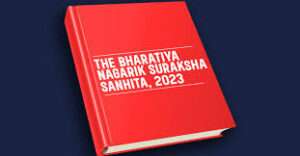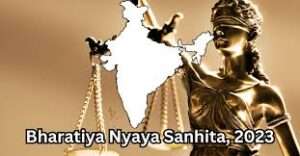
This article has been written by Sanju Jha (pursuing Ba. Llb from Rnb Global University, Bikaner.)

Introduction
The word “confession” appears for the first time in Section 24 of the Indian Evidence Act. This section comes under the heading of Admission so it is clear that the confessions are merely one species of admission. Confession is not defined in the Act. Mr. Justice Stephen in his Digest of the law of Evidence defines confession as “confession is an admission made at any time by a person charged with a crime stating or suggesting the inference that he committed that crime.”
Howdy, you all! Welcome to your page of knowledge. You will find different legal blogs, the latest news, current affairs, and many more on this channel. This is the initiative to develop the knowledge of the law in the world, especially for you.
In Pakala Narayan Swami v Emperor Lord Atkin observed “A confession must either admit in terms the offence or at any rate substantially all the facts which constitute the offence. An admission of a gravely incriminating fact, even a conclusively incriminating fact is not in itself a confession”.
In the case of Palvinder Kaur v State of Punjab the Supreme Court approved the Privy Council decision in Pakala Narayan Swami case over two scores.
Firstly, that the definition is if confession is that it must either admit the guilt in terms or admit substantially all the facts which constitute the offence. Secondly, that a mixed up statement which even though contains some confessional statement will still lead to acquittal, is no confession. Thus, a statement that contains self-exculpatory matter which if true would negate the matter or offence, cannot amount to confession.
However in the case Nishi Kant Jha v State of Bihar the Supreme Court pointed out that there was nothing wrong or relying on a part of the confessional statement and rejecting the rest, and for this purpose, the Court drew support from English authorities. When there is enough evidence to reject the exculpatory part of the accused person’s statements, the Court may rely on the inculpatory part.
TYPES OF CONFESSION
Formal confession – Formal confession, also known as Judicial Confession, refers to claims made before a judge or in a court of law during the course of a criminal action. A judicial confession is nothing more than a “plea of guilty,” as defined in Article 20(3) of the Indian Constitution.
- Made to a magistrate in the due course of judicial proceeding.
- It also covers under the section 164 of code of criminal procedure, 1973.
- It can be recorded during investigation.
- Conviction can be solely based on confession it is proved that such confession was voluntary and true and general confession to such confession may needed at time.
Informal Confession – Extrajudicial confessions are assertions made outside of a court of law or in the absence of a judge. The statements should not have been addressed to a specific person. Informal confession can be made in the form of prayer, in any private area, or in a self- conversation, just as judicial confession might. The court must, however, ensure that the accused’s confession, whether judicial or extrajudicial, is in accordance with Article 20(3) of the Indian Constitution, which provides that “no one should be pressured to give testimony against themselves.” This means that a confession must be freely and truthfully made before a person can be charged with a crime.
While Sahadevan v. State of Tamil Nadu the Supreme Court, in deciding the case, established a few principles in the form of rules, which the court must follow before admitting the accused’s confession. The Supreme Court mentioned the following principles:
- Extrajudicial confessions are often a weak source of evidence on their own, and the court must properly investigate such statements.
- Extrajudicial admissions must be made of one’s own free will and be truthful.
- When extrajudicial confessions are supported by other evidence, their evidentiary value skyrockets.
- The confessor’s statements must show his guarantee.
SECTION 24 of IEA,1872
Section 24 of the same Act explains various situations in which a confession based on such circumstances becomes irrelevant. Section 24 of the Indian Evidence Act states that a confession made by a person accused of some offence is irrelevant if such confession is the result of any inducement, threat, or promise and such instances have come from a person in authority such as police, magistrate, court, etc. The other condition of this section is that the inducement, threat, or promise must be in reference to the charge of any offence and all such inducements, threats, or promises must give the benefit of the doubt.
In the case of Nandini Satpathy v. P.L. Dani, the Supreme Court of India addressed the issue of the voluntariness of a confession. The court emphasized the importance of a free and voluntary confession. It ruled that if a confession is found to be involuntary, it cannot be admitted as evidence.
SECTION 25 of IEA, 1872
Section 25 of the Indian Evidence Act states that no confession made to a police officer is provable or relevant. This provision is in place to safeguard the rights of the accused, as confessions obtained under police custody may be coerced or extracted through torture.
However, if a person confesses in the presence of someone other than a police officer, it is not rendered irrelevant solely due to the presence of a policeman. This section only applies to confessional statements, whether orally or in a First Information Report (FIR). Other admissions can still be presented as evidence to establish facts or facts.
SECTION 26 of IEA, 1872
Section 26 is similar to the preceding section and asserts that no confession made by a person in police custody is admissible as evidence. This provision recognises that false confessions may be obtained under duress or fear, not limited to interactions with police officers alone.
Police custody encompasses not only confinement within the walls of a police station but also situations where the police exercise control over an individual in their home, car or public places. The only exception to this rule is when the person makes a confession in the presence of a Magistrate, in which case it becomes admissible.
SECTION 27 of IEA, 1872
Section 27 establishes an exception to Section 26. It states that if a statement leads to discovering a fact related to the crime, it becomes admissible as evidence, even if it was obtained through coercion.
To validate the authenticity of such recoveries, they should occur in the presence of witnesses. In the case of Mohan Lal v Ajit Singh, the accused indicated the location of stolen goods upon arrest, and the items were found within six days. The court deemed this statement relevant, and the accused was held liable for murder and robbery based on the evidence obtained.
However, a statement made by an accused cannot be used against other co-accused, as determined in the case of Satish Chandra Seal v Emperor.
SECTION 28 of IEA, 1872
Section 28 stipulates that a subsequent confession becomes relevant if the inducement, threat or promise, as defined in Section 24, is removed. In such cases, the confession is considered free and voluntary.
SECTION 29of IEA, 1872
Unlike without-prejudice statements in admissions, a confession made under a promise of secrecy is admissible in court. The focus of the law is on whether the confession is voluntary, so even if deception, fraud, intoxication or the answering of unauthorised questions are involved, the confession can still be considered admissible.
In the case of R v Maqsud Ali, two accused individuals were left alone in a room where they believed they were unobserved, but secret tape recorders had been placed in the room. The recorded confessions were deemed relevant and admissible.
SECTION 30 of IEA, 1872
Section 30 of the Indian Evidence Act applies when multiple individuals are jointly accused of the same offence. In such cases, if one of the co-accused makes a confession implicating themselves and other individuals, the court can consider that confession as evidence against both the accused making the confession and their co-accused.
In the case of Kashmira Singh v State of MP, a person named Gurbachan, along with three others, was accused of murdering a child. Through Gurbachan’s confession, the prosecution constructed the narrative of the crime, leading to the conviction and death sentence of both Gurbachan and Kashmira Singh.
However, on appeal to the Supreme Court, Kashmira Singh was acquitted as an uncorroborated confession was deemed insufficient to deprive a person of their right to life.
CONCULSION
The confession can be admissible as evidence in a judicial proceeding, including a trial or an inquiry before a Magistrate. It’s important to note that while confessions have evidentiary value, they are not considered conclusive proof of guilt. The court examines the confession in conjunction with other evidence to determine the guilt or innocence of the accused. It’s also worth mentioning that the Indian Evidence Act provides additional provisions regarding the retraction of confessions, the effect of an involuntary confession, and the use of confessions made to persons other than authorities. These provisions further contribute to the comprehensive framework governing confessions in Indian law.
- Business Law
- Case Law
- Civil Law
- Constitutional Law
- Consumer Protection
- Criminal Law
- Current Affairs
- Current legal issues
- Environmental Law
- Intellectual Property
- Legal Facts
- Legal News
- Uncategorized
- HISTORY & EVOLUTION OF LAWS OF PREVENTIVE DETENTION IN INDIA
- JUDGEMENT PROCEDURES IN THE BHARATIYA NAGARIK SURAKSHA SANHITA
- Understanding Section 187 of the Bharatiya Nagrik Suraksha Sanhita (BNSS), 2023: A Comparison with CrPC
- What are keys changes introduced in BHARTIYA NYAYA SAHITA 2023
- An Analysis of Chapter IX of the Bharatiya Nyaya Sanhita, 2023: Of Offences Relating to Elections
LegalOnus
Aequitas Sequitur Legem






